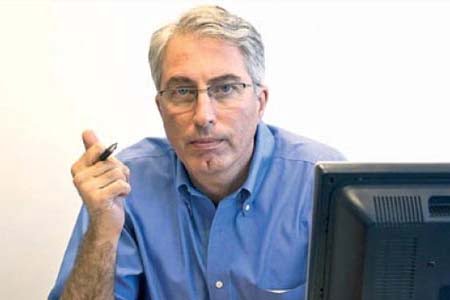Erdoğan now at odds with once-closest ally

Date posted: November 30, 2013
Murat Yetkin
Those who have an interest in Turkish politics may have been a little confused for the last few weeks, observing the row between Prime Minister Tayyip Erdoğan’s Justice and Development Party (AK Parti) government and the social movement of religious scholar Fethullah Gülen, or the “Hizmet” (Service) movement as they preferred to be called. The row is over the closure of private prep schools (“dershane” in Turkish) as a supplement to the centralized high school and university entrance exams.
The government thinks dershanes have turned into parasitic lifeforms and it is necessary to get rid of them in order to have better control over the national education system. However, along with other private investors, the Gülen group has a major share in the dershane system through the private schools they run. It suspects that the government move was actually taken to curb the group’s effectiveness and influence.
Gülen has been one of the Erdoğan government’s closest allies since the AK Parti took power in 2002. Formed as a social grouping promoting the peaceful solidarity of pious, educated Anatolian middle class, the Gülen group became politicized during the AK Parti government period and called on its sympathizers to vote for it in the 2007 and 2011 elections. That had not previously been observed in the group’s history of more than three decades, and came because of its feelings of being targeted by the military as a source of anti-secularist activities. When the military issued a statement against the possibility of then-Foreign Minister Abdullah Gül being elected president (with his headscarved wife), the Gülen group considered support for Erdoğan as a strategic choice for the future of all pious and conservative Muslims.
From that point on, the Gülen support to Erdoğan started to take on different forms. With sympathizers patiently climbing the stairs of hierarchy for years in the judiciary, the police, education and elsewhere in the bureaucracy, the group got into a strategic partnership with Erdoğan against the “military tutelage” over the Turkish political system. The AK Parti’s votes jumped to 47 percent in the 2007 elections (from 34 percent in 2002), and Gülen had a share in this, along with Erdoğan’s economic success and voters’ growing antipathy with the military’s intervention in politics. Many police inspectors (especially in the intelligence branch), prosecutors, and even judges – who played a crucial role in probes and later on in court cases against soldiers in the Ergenekon and Balyoz cases – are claimed to be sympathizers of the Gülen Movement, or the “Cemaat,” (Community), as it is publicly known.
Things started to turn sour in 2011, when Erdoğan got a rare 50 percent support from voters in the June elections. By then, he had already transferred the military intelligence’s eavesdropping devices and facilities to the National Intelligence Organization (MİT) and appointed Hakan Fidan, who he calls his “black box,” as its head. The first wave of purges within the police and prosecutors came during a probe against the head of the Fenerbahçe football club, which according to Erdoğan was also a powerbase. However, the real purge came after a counter-move by Istanbul prosecutors to question Fidan over the MİT’s covert activity to plant agents into the outlawed Kurdistan Workers’ Party (PKK).
Erdoğan got very upset and things never returned to normal with the Gülen group, despite temporary “ups” since then. There might be a trust issue between them, too. For example, when Erdoğan told Gülen that he was free and welcome to return to Turkey from the U.S., where he has been living since 1999, Gülen smoothly rejected it, saying that he did not want to cause additional problems with his return.
The Gülen sympathizers who helped Erdoğan get rid of soldiers from politics and hoped to became unnamed coalition partners in doing so, are now disappointed to see that Erdoğan does not want any shareholders of power alongside himself.
Source: Hurriyet Daily News , November 30, 2013
Tags: Democracy | Hizmet and politics | Turkey |
























